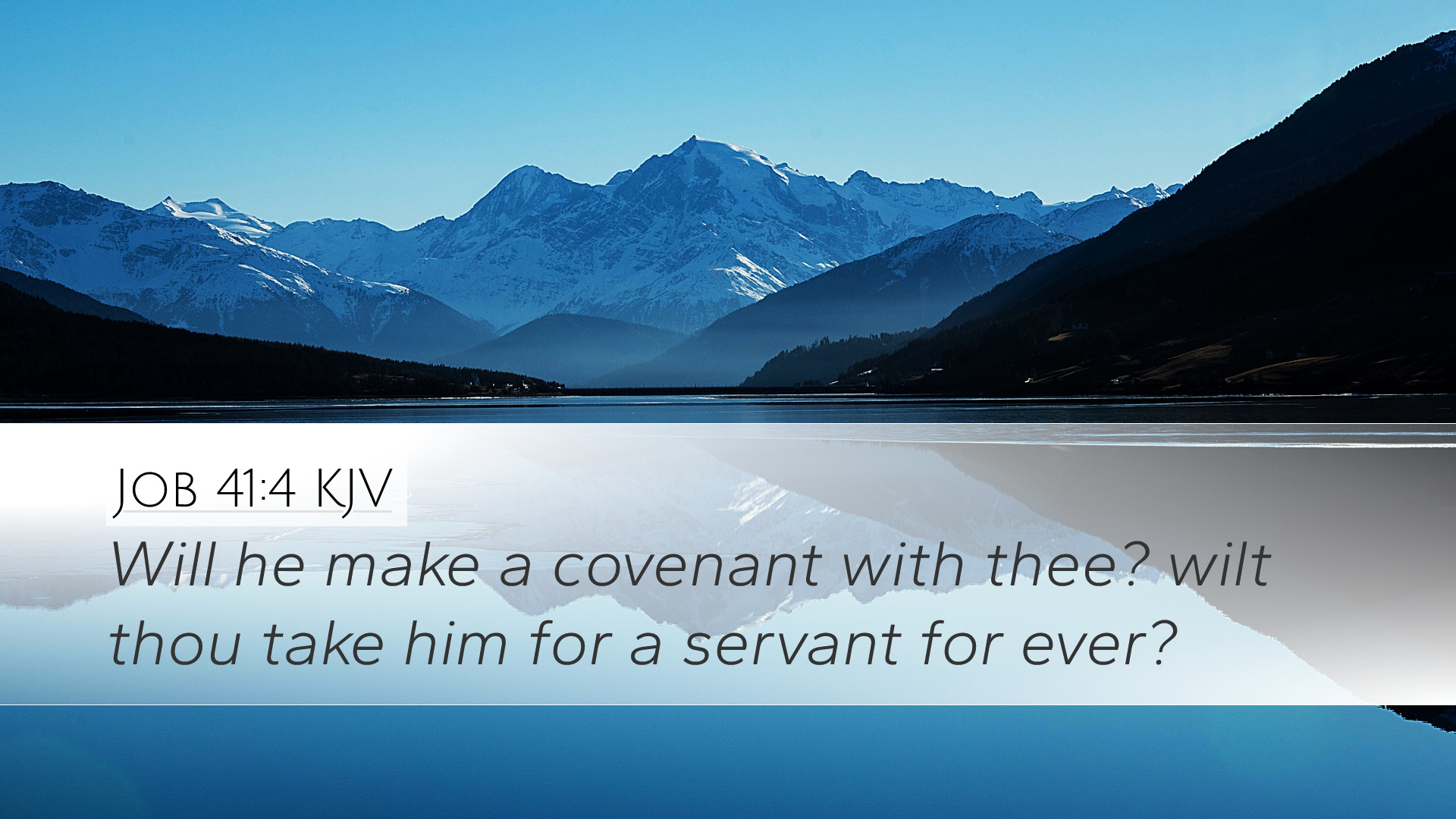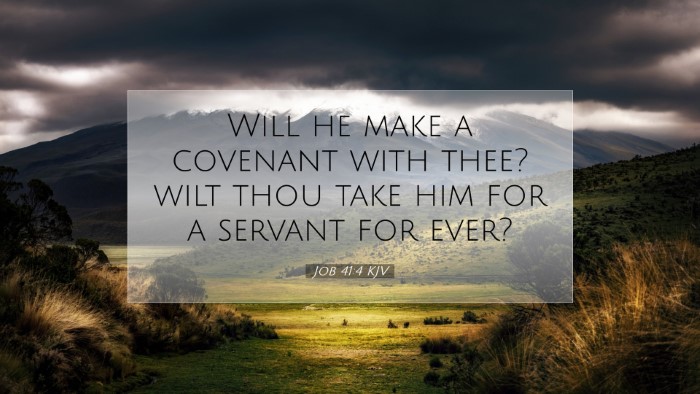Commentary on Job 41:4
Job 41:4 reads: "Will he make a covenant with you? Will you take him for your servant forever?" This verse embodies a profound exploration of the nature of power and the divine sovereignty of God as illustrated through His creation.
Contextual Overview
The Book of Job addresses profound questions about suffering, divine justice, and the human condition. In chapter 41, God speaks to Job out of the whirlwind, presenting a series of rhetorical questions aimed at revealing Job's limited understanding of God's creation and governance. The focus here is on Leviathan, a creature symbolizing chaos and untamed nature, representing God's uncontrollable power.
Insights from Commentators
Matthew Henry's Commentary
Matthew Henry highlights that God’s conversation with Job serves to demonstrate His omnipotence and the futility of Job’s challenge against the divine order. Henry expounds that the questions God poses are not merely for information but to position Job (and the reader) in a place of humility before divine wisdom. The covenant metaphor used highlights the impossibility of subduing such a creature, emphasizing that only God can command Leviathan.
Albert Barnes' Notes on the Bible
Albert Barnes elaborates on the implications of a covenant with Leviathan. He suggests that this creature, often seen as a nemesis of mankind, cannot and should not be trusted for cooperation. Barnes underscores the notion that humanity’s attempts to dominate or control such forces are in vain. The imagery reflects deeper themes of spiritual warfare and the recognition that true strength lies in submission to God’s authority, not in grappling with chaos.
Adam Clarke's Commentary
Adam Clarke offers a detailed analysis of the language and symbolism in the text. He points out that "covenant" implies a reciprocal relationship, which would be impossible with Leviathan, as it is not a creature of rational choice. Clarke points to the inherent danger of engaging with uncontrollable aspects of the world, where human beings must acknowledge their limitations and seek refuge in God’s wisdom and might.
Thematic Reflections
- The Immutability of Divine Purpose: This verse encapsulates the steadfastness of God’s sovereign plans versus the fickleness of human ambition.
- The Nature of Power: The inability to "take him for your servant forever" speaks to the recognition that true servitude should be to God, who alone commands true power.
- Human Limitations: This verse serves as a reminder of the limitations of human intervention in the face of divine or natural chaos.
Application for Pastors and Theologians
This verse invites pastors and theologians to reflect on the nature of authority in their ministry and the world. It challenges the narrative of human agency and highlights the necessity of humility in approach to God. Are we not sometimes like Job, trying to manage aspects of our lives or churches that are beyond our control?
In a world that is increasingly chaotic, the message of Job 41:4 is pertinent. It reminds leaders that rather than seeking to control situations, they must recognize where their strength lies - in God’s ability to govern and reign over creation. Therefore, in sermon preparation and teaching, this verse provides a foundation to emphasize submission to God's will as a source of peace amidst chaos.
Conclusion
In summary, Job 41:4 invites deep contemplation on the relationship between Creator and creation. Drawing wisdom from classic commentaries brings clarity to these themes and equips believers to grapple with the complexity of God’s dominion over chaos. For scholars and students of the Bible, this verse serves as a profound reminder of the divine attributes of power, sovereignty, and wisdom that underpin our understanding of scripture.


